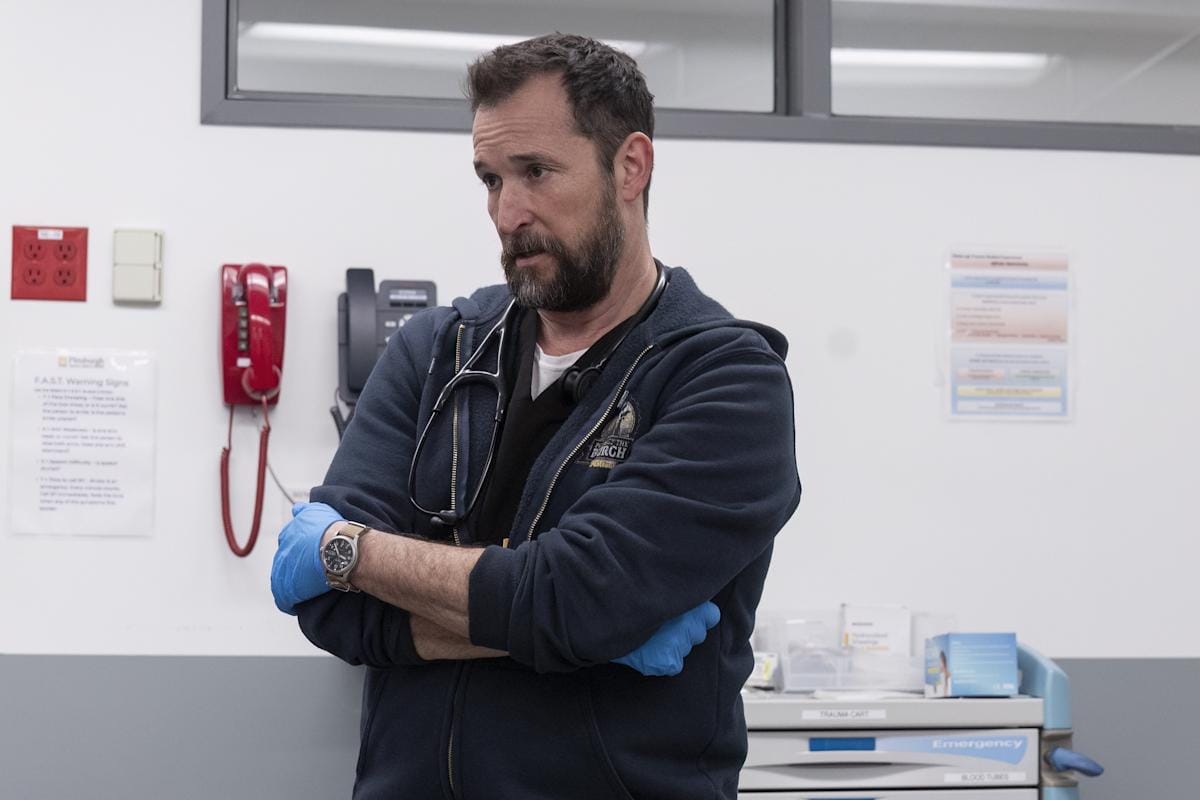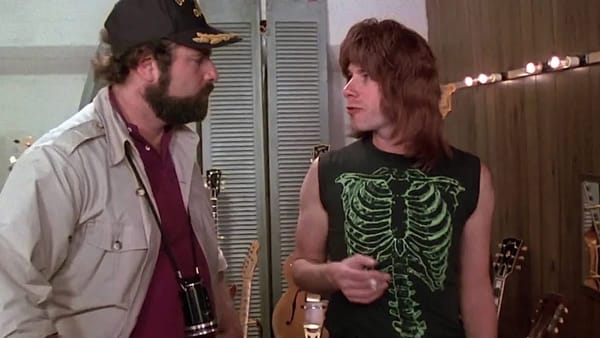👻 Inneresting #246 - Spiritual Successors

Not every movie or show gets a reunion reboot or legacy sequel. Sometimes we can feel the influence of the past, but with an additional twist.
These are the spiritual successors. They may not always be obvious in what stories they owe a debt to, but you feel the connection.
This isn't plagiarism. It's influence and inspiration, akin to the line from Austin Kleon's Steal Like an Artist:
Don't just steal the style, steal the thinking behind the style. You don't want to look like your heroes, you want to see like your heroes.
David Sims considers how the hour-by-hour episode structure of The Pitt allows not only for more realistic storytelling, but also gives audiences a deeper understanding of the progression of trauma cases. The season tells the story of one day, framed by one shift rotation at the hospital. A character can have an ingenious save in one moment, and hours later need to face the limits of what they can do. Life moves fast, and we have to keep pace with these doctors, nurses, and students. This granular approach also adds value to moments that could be shoe leather easily lopped off of a similar show:
Dr. Robby faces timeless dilemmas, in which he often assumes the role of a reliable mentor. Not all of those dilemmas are high-risk, either: One of the most memorable problems he’s dealt with thus far has been his need to use the restroom, only to be held up repeatedly.
Isaiah Colbert relays how The Pitt sets itself apart from current medical dramas (and Noah Wyle’s last emergency room gig) with its mix of earnestness and its unsparing depiction of being a modern health care worker. Ryan Pferdehirt from the Center for Practical Bioethics shares how The Pitt presents a nuanced depiction of a teaching hospital, and the ways that the pacing of the show allows for more follow up with characters as they work to improve their skills.
Chris Fujiwara explores how Rainer Werner Fassbinder’s Ali Fear Eats the Soul is not a remake of Douglas Sirk’s melodrama All That Heaven Allows, but an echo of the earlier film’s tensions in a new time and place.
Sometimes a show is counting on people making the comparison to its implied predecessor. Jackson McHenry offers a quick roundup of shows audiences compare to Twin Peaks, and a few that were heavily marketed to make that comparison. Elena Lazic concludes that Northern Exposure may be tonally different than Twin Peaks, but should still be considered a spiritual successor.
But style and presumed audience aren't the only things that can show the trail of influence. Kelsey Yoor sees a spiritual successor to David Lynch's storytelling in the Paddington films, as both feature outsiders navigating a strange new environment with a belief in kindness and goodness.

👋 Are you new here?
Inneresting is a weekly newsletter about writing and things that are interesting to writers. Subscribe now to get more Inneresting things sent to your inbox.
Previously on Inneresting…
In case you missed it, in last issue’s most clicked link, Brookes Eggleston gives a baseline for some characteristics that make audiences feel queasy about liking a fictional character. Spoilers: Caillou fits just about all the criteria.
What else is inneresting?
- David Moldawer on writing a draft for long enough to let it show you what its problems actually are before you scrap it.
- Short and to the point, Rach Smith on the relationship between the frequency of putting out work and your perception of how good it must be to be worth sharing.
- Sakai Keisuke demonstrates the craft of wood bending.
And that’s what’s inneresting this week!
Inneresting is edited by Chris Csont, with contributions from readers like you and the entire Quote-Unquote team.
Are you enjoying this newsletter?
📧 Forward it to a friend and suggest they check it out.
🔗 Share a link to this post on social media.
🗣 Have ideas for future topics (or just want to say hello)? Reach out to Chris via email at inneresting@johnaugust.com, Bluesky @ccsont.bsky.social, or Mastodon @ccsont@mastodon.art.
Post-Credits Scene
And now, the unreleased theme song for The Pitt.




